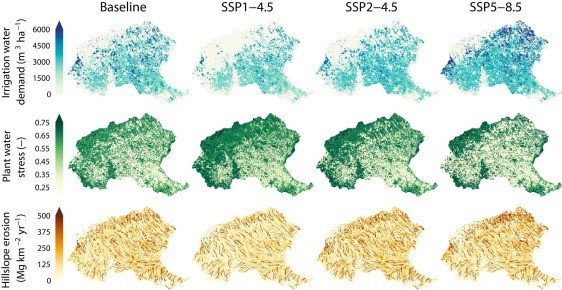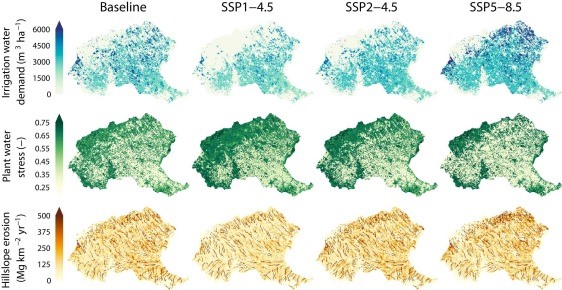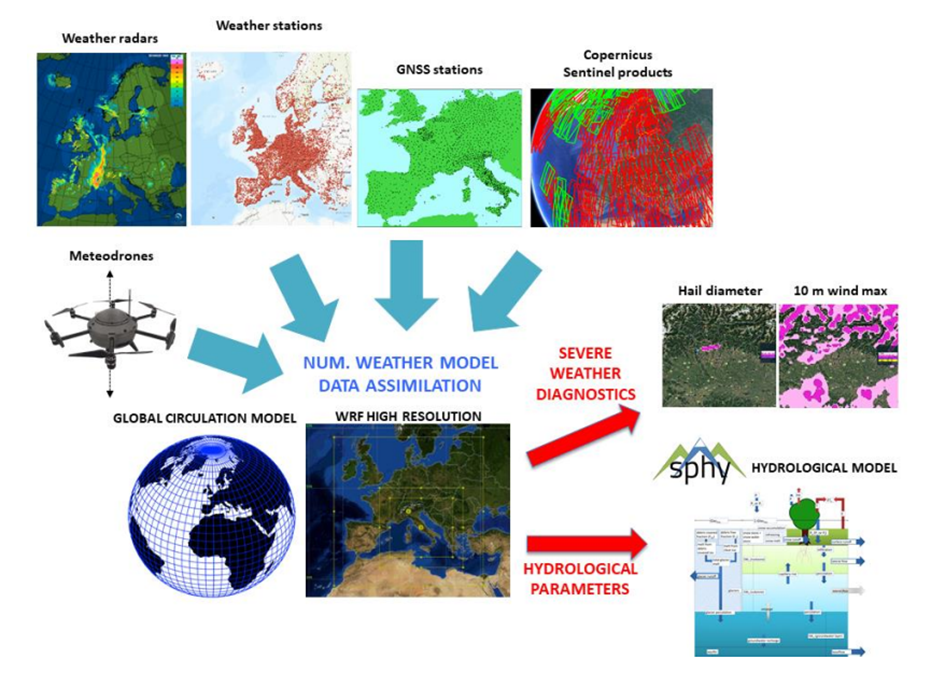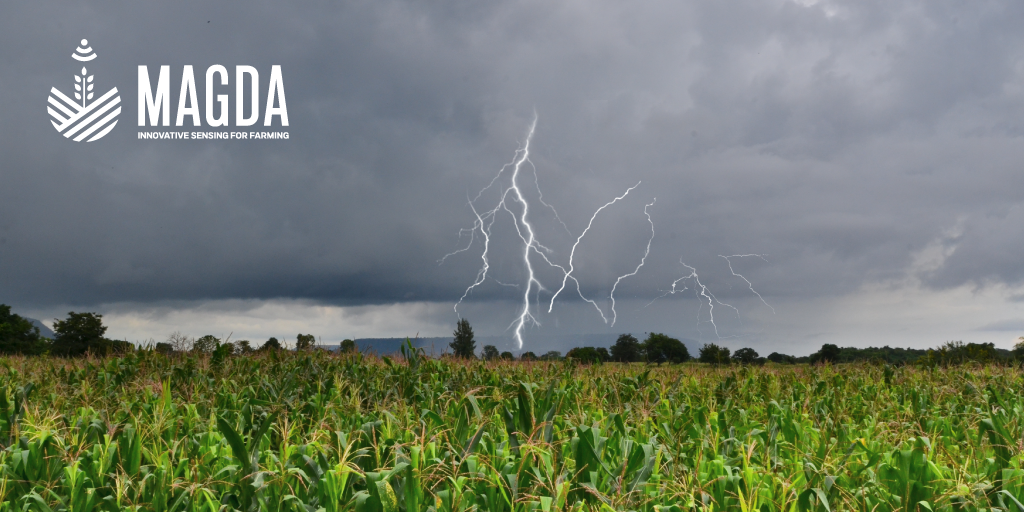
Increasing irrigation demands prompt focus on water efficiency and sustainable practices
Climate change is anticipated to exacerbate irrigation water demands due to several interconnected factors. Rising temperatures lead to increased evaporation rates, intensifying water loss from soils and reservoirs. Changes in precipitation patterns result in altered hydrological cycles, potentially causing more frequent and severe droughts in some regions while increasing the likelihood of extreme rainfall events in others, necessitating improved water management strategies.
SPHY (Spatial Processes in Hydrology), the hydrological model used within MAGDA to provide irrigation advice, has been used in a recent study to evaluate water security indicators for different climate change and land use scenarios in a Mediterranean catchment.
The expected changes in irrigation water supply and demand are not only affected by climate change. Socio-economic drivers will be equally important and may decide.
The study applied the SPHY model to a reference scenario (1991–2020) and two future climate scenarios for the period 2040–2069, based on the Representative Concentration Pathway climate change scenarios, i.e. RCP4.5 and RCP8.5, which describe an emission scenario peaking in 2040 followed by a decline (RCP4.5), and an emission scenario with continuous increase in emissions throughout the 21st century (RCP8.5).
Model results show that irrigation water demand increases significantly in SSP5-8.5 (+ 39.8% with respect to the baseline). Figure 1 shows the model outputs of three different water security indicators for the different SSP scenarios.

The MAGDA project contributes to alleviating this impact, as climate change adaptation can be achieved by decreasing irrigation water demand through more efficient irrigation techniques, such as irrigation advisory.
References
J.P.C. Eekhout, I. Delsman, J.E.M. Baartman, M. van Eupen, C. van Haren, S. Contreras, J. Martínez-López, J. de Vente, How future changes in irrigation water supply and demand affect water security in a Mediterranean catchment, Agricultural Water Management, Volume 297, 2024, 108818, ISSN 0378-3774, https://doi.org/10.1016/j.agwat.2024.108818.
Links
https://www.sciencedirect.com/science/article/pii/S0378377424001537#fig0015
Keywords
Climate change, irrigation, efficiency, hydrological models


